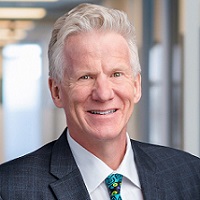 By Nick van Terheyden aka Dr Nick, Principal, ECG Management Consulting
By Nick van Terheyden aka Dr Nick, Principal, ECG Management Consulting
Twitter: @drnic1
Host of Healthcare Upside Down – #HCupsidedown
Heart disease is the leading cause of adult deaths, both in the US and around the globe. There’s no shortage of data on how to ward off its effects—information on fats, lipids, and the risks associated with various forms of diets. Is there a good and bad type of fat? Are certain lipoproteins good and others bad? How can you change those factors, and what happens if you don’t?
In my own early life, I found myself immersed in the early experiences and advances of cardiac disease and treatment. My father was fortunate to have access to advanced treatment and care, thankfully saving him from an early death as a result of heart disease. Some of his relatives were not as lucky.
Episode NOW on Demand
Despite following this area and seeking the truth, I have found this journey to be difficult and filled with changing information. That’s not to say that the science is not clear. But like many other areas in medicine, we have much to learn. And the speed with which this knowledge becomes universally applied remains glacial.
But there are some emerging elements about heart disease that most agree upon, and one is that the earlier we can diagnose and treat its causes, the better.
On this episode Dr. Michael Davidson of the University of Chicago Pritzker School of Medicine talks about primordial screening—preventing the emergence or development of risk factors before they appear—and how we can accelerate the application of data to support evidence-based decision-making. Below are a few excerpts.
Primordial prevention.
The new trend in cholesterol screening is called primordial prevention. Atherosclerosis starts at a young age—we know that from the Vietnam War, when soldiers were killed in combat, on autopsy, a lot of them already had plaque. And I know that from car accident victims of children who had heart disease in their parents—they also had plaque early in age. It starts early in life.
And so we are strongly considering what’s called primordial prevention, which is treating cholesterol as early in life as possible. You want to keep your LDL below 80 your entire life. That doesn’t necessarily mean medication, but it means lifestyle and things like that. That’s where I believe things are heading.
Early screening.
Everything has to be taken into context. The numbers say one thing, but what’s more important is your underlying risk for heart disease. That’s where family history becomes important. If you do have a strong family history of heart disease, you should be screened when you’re a child and determine whether you have high cholesterol. And there are recommendations now that by age eight, if you have an LDL cholesterol over 190, you should probably be started on a statin because you have [a risk of developing] premature heart disease. Once you already have plaque, it’s much harder to reverse it than is stopping it from happening in the first place.
Advice to young people.
When I see a young person, I tell them my own personal story, which is that my father died at age 47 of a heart attack. I was 16 years old, my brother was 14. We both had our cholesterol tested, and both of us had horrible cholesterol profiles. We were young, skinny kids, and there weren’t any medicines available at the time. I started taking medicine in medical school, and in 1987, I started taking statins. So I was roughly 30 years old, and I’ve been on statins my whole life. My brother decided to become a vegetarian and became very health conscious, and still is. He unfortunately had a bypass at age 44, and did not take a statin (and he’s doing fine now, thank goodness). I’ve been scanned multiple times, and I don’t have significant coronary disease at age 65. So I think my own personal story helps me feel passionate about it for other young people out there—starting early in life can make a big difference.
About the Show
The US spends more on healthcare per capita than any other country on the planet. So why don’t we have superior outcomes? Why haven’t the principles of capitalism prevailed? And why do American consumers have so much trouble accessing and paying for healthcare? Dive into these and other issues on Healthcare Upside/Down with ECG principal Dr. Nick van Terheyden and guest panelists as they discuss the upsides and downsides of healthcare in the US, and how to make the system work for everyone.
This article was originally published on the ECG Management Consulting blog and is republished here with permission.
